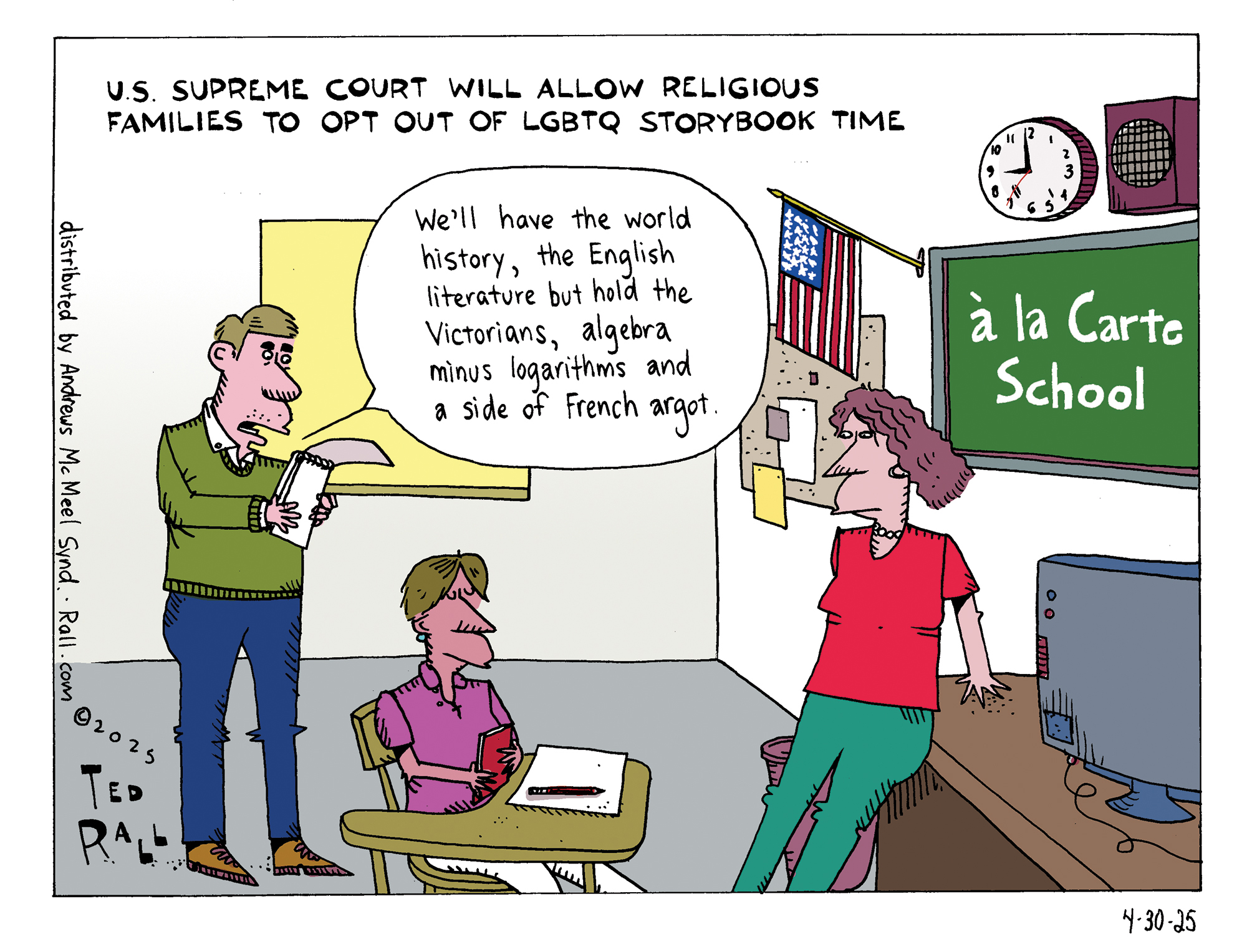The U.S. Supreme Court heard arguments in a case where religious families in Montgomery County, Maryland, sought to opt their children out of public school lessons involving LGBTQ storybooks. The conservative majority seemed likely to favor the parents, prioritizing religious freedom and parental rights. Justices like Samuel Alito and Brett Kavanaugh questioned the feasibility of denying opt outs, while liberal justices worried about broader impacts. Should parents be able to have their kids educated a la carte, choosing which lessons align with their beliefs? This debate highlights tensions between individual rights and standardized education, with a ruling expected soon.
A La Carte Education: Skip The LGBTQ Storybook Special

Ted Rall
Ted Rall is a syndicated political cartoonist for Andrews McMeel Syndication and WhoWhatWhy.org and Counterpoint. He is a contributor to Centerclip and co-host of "The TMI Show" talk show. He is a graphic novelist and author of many books of art and prose, and an occasional war correspondent. He is, recently, the author of the graphic novel "2024: Revisited."

3 Comments. Leave new
Perhaps it’s time to turn the dial to 11. Let the parents sign off on everything. When the kid can’t pass the finals and graduate? Hand the parent the sheets they signed. “Not our problem. You and your religious beliefs knew better.”
I would also make completing high school or passing the GED a prerequisite for ANY form of social safety aid such as welfare, rent assistance, driver license, and the like. And while we’re at it? Make GETTING a degree a requirement for credit cards. “Hey, kid, you couldn’t finish high school. You’re a bad risk.”
“A high school degree is meaningless.”
“Yes, it isn’t anymore. You need it — or a state-approved medical signoff, and those require you being wheeled in inside an iron lung — to do anything fun or get any help.”
Public school was originally intended to culturally homogenize children, and to get them used to doing what they’re told and stopping and starting when the bell rings. At a level, I’m not terribly sympathetic to any of those projects. On the other hand, we live in a society that has so atomized family structure that kids can’t learn from helping their parents, and there needs to be a societal institution that gives everybody the same basics.
I think the LGBTQ divide occurs because sexual diversity is common in some peoples’ social circles while it is completely absent from others. Those for whom it is absent could use such school lessons as a “teaching moment” for their kids, but would apparently prefer not to tackle the subject, and given the overall educational climate these days, prefer to have the whole issue swept under the rug.
Require that they have high school diplomas or pass a literacy test… where have I heard of that before?
Public schools, public libraries, and public services generally were motivated by issues such as widespread illiteracy and extreme poverty. If we let these institutions collapse we risk going back to that dystopia. Due to many factors, education has become somewhat of a factory mill, and it can seem like it is training its pupils only to be factory workers. I see that as an inadequacy that can be overcome rather than a longstanding goal of education itself.
I doubt that LGBTQ is “completely absent from others.” It’s just that it is forced under the radar in some communities because those LGBTQ individuals who are visible end up effectively exiled or excommunicated. (Insert discussion here about how there is no LGBTQ or sexuality at all among catholic priests … unless you mean in the real world.)